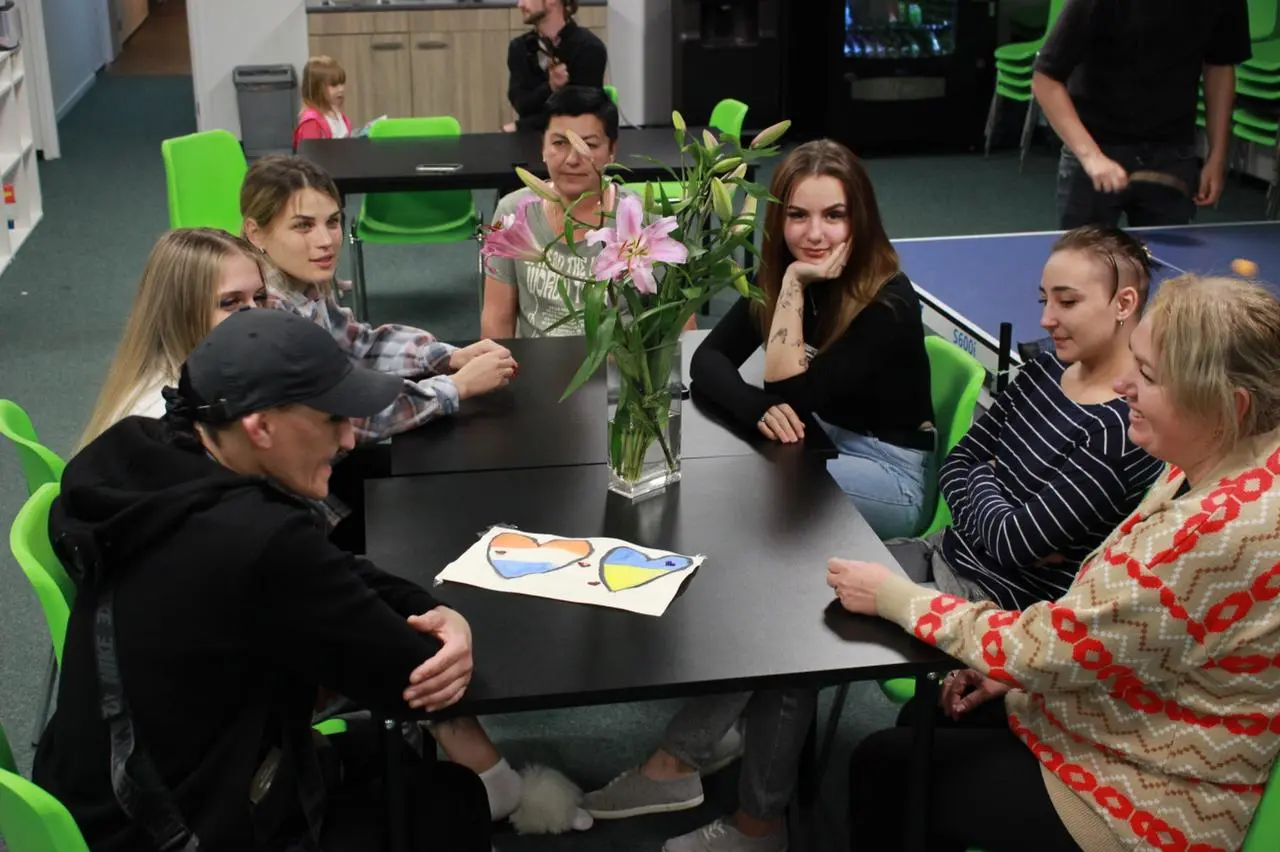
"I go back to Ukraine to see my doctor"
Share on social media:
"No matter what our complaints are, we are always just prescribed paracetamol." This is the experience of the Ukrainian women at the reception centre in Beek, Limburg. Maria, Alina, Masha and Ivana say that they do not feel heard by the Dutch GP. What are the differences in healthcare compared to Ukraine and how can you deal with them?
Language problems
"There is often miscommunication. The general practitioner is far away and our medical records are not here," says Ivana. The problems of many women at this reception centre include language. They cannot properly explain their complaints to the GP. They also often fail to be referred to the hospital. And Gps do not know what kind of treatment or medication someone has already had in Ukraine.
Maria talks about her chronic kidney disease. She has difficulty talking to the GP about this. "I would like check-ups in the hospital with a specialist, but the GP says this is not necessary. If this continues for a long time, I will go back to Ukraine to see my doctor." And Alina says that sometimes people also order strong medicine in Ukraine, often through illegal trade.
The women still have little confidence in Dutch healthcare.
Different culture, different care
Team leader Miranda Gezel of
Hanny Ras from the municipality of Beek recognises this situation. She is responsible for healthcare for Ukrainians in this municipality. Ras explains that many general practitioners think Ukrainians go to a doctor too quickly, more so than is usual here in the Netherlands. GPs are already very busy and often have too many patients, which makes it even more difficult, she explains. "We distributed the large group of Ukrainian refugees as well as we could among the available GPs. And I think we offer a substantial package of care to help them."
Back to Ukraine
The Beek municipality is aware that people now sometimes travel to Ukraine for healthcare and calls it the Ukrainian's own responsibility. "They are allowed to travel, so if people choose to seek other healthcare abroad, they are free to do so." Ivana did this before, and not without danger. "The street was bombed when I was there. But I felt I had no choice but to go to the doctor there."
Clear information needed
The cultural differences in healthcare do not only play out in Beek, Ukrainian social media - consultant Jamal Statshenko knows. He works for VWN and manages a Telegram channel for Ukrainians in the Netherlands. Statsenko sees many questions and problems about healthcare coming through. It is important to provide clear information that includes the differences between Ukrainian and Dutch healthcare. Employing Ukrainian doctors, who are not allowed to do their work here now, could also make a difference.
Here is what you can do if you are unhappy with healthcare
Some people choose to go abroad to get the healthcare they want. But what can you do in the Netherlands?
Ask for an interpreter to come with you to your appointment or have the doctor call an interpreter.
Bring the packaging of your medications with you so the doctor can see what medications you were taking before. Please note, in the Netherlands, doctors prescribe less (strong) medication than you are used to in Ukraine. The doctor will look for the best alternative.
Ask questions: you may ask the doctor anything.
If you cannot figure out what to do, do not wait with your complaints - but ask for help. For example, a volunteer or team leader from VluchtelingenWerk can help you.
If you do go to Ukraine for healthcare, inform your Dutch GP about this afterwards, so that your situation and medication use is also known here.